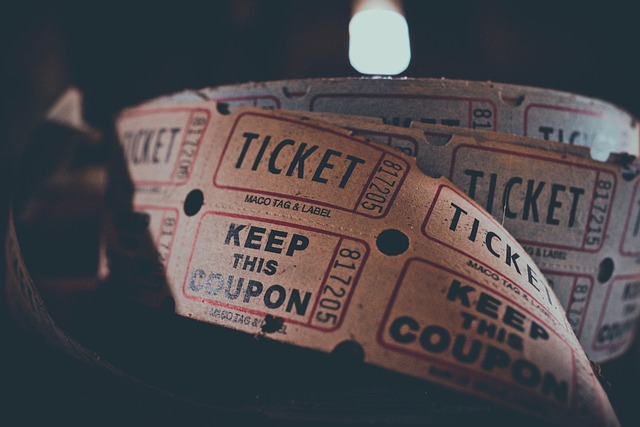When people think about the lottery, they often imagine a random flurry of digits flashing across a screen. In reality, the distribution of numbers that people actually play is far from random. This subtle bias has implications for how often a particular set of digits appears on tickets, which in turn can affect the way winnings are split when a prize is won. Understanding the role of typical numbers in lottery play can give players insight into the mechanics of their odds, even if it doesn’t magically guarantee a jackpot.
The Myth of Randomness in Numbers Selection
Lotteries are designed to be fair by using mechanical or electronic random number generators that produce each possible combination with equal probability. However, the human factor introduces patterns. People tend to choose birthdays, anniversaries, or other significant dates, which limits the range of numbers selected. In many draws, the numbers between 1 and 31 dominate because they correspond to days in a month. This concentration is a prime example of how typical numbers differ from a truly uniform distribution.
- Birthdays and anniversaries favor lower numbers.
- Superstitions lead to “lucky” numbers such as 7, 13, or 21.
- Many players use the same pre‑set sequences, amplifying common patterns.
Statistical Evidence of Non‑Uniform Selection
Data from major national lotteries show that certain numbers appear significantly more often on player tickets than others. For instance, in the United States Powerball, the number 23 was chosen by more than 10% of participants in a particular year, compared to an expected 1.7% if choices were random. Likewise, the EuroMillions lottery exhibits a higher frequency of numbers between 1 and 35, the range most frequently selected by European players.
“When players pick numbers based on personal significance, the selection process becomes a social experiment more than a statistical gamble.” – Dr. Elise Martinez, Behavioral Economist
Implications for Lottery Strategy
While no strategy can change the fundamental odds of winning, awareness of typical numbers can help players make more informed choices. By selecting a spread of digits that includes less common numbers, players reduce the chance that a prize will have to be divided among a large group of winners. For example, a ticket that includes numbers above 31 may be slightly less popular, meaning that a win would likely be split among fewer people.
Another approach is to use “random number generators” that intentionally avoid the common 1–31 cluster. Some online tools allow players to request a truly random set of numbers, giving them a chance to sidestep the crowd. While this doesn’t increase the probability of hitting the jackpot, it can improve the payout if a win does occur.
Common Pitfalls When Ignoring Typical Numbers
- Over‑reliance on Personal Significance: Players who only choose dates from their personal calendars tend to form clusters that are easy to predict.
- Pattern Selections: Many people pick straight lines, rows, or “lucky” patterns on a play slip, which again reduces randomness.
- Copying Others: In social circles where a particular set of numbers is shared, group buying can inadvertently create a large pool of identical tickets, inflating prize splitting.
Psychology Behind Number Choices
The human brain is wired to seek meaning, especially in situations involving uncertainty. This inclination drives gamblers to assign personal meaning to numbers, which is a comforting illusion of control. The feeling of having a “special” set of digits can increase a player’s confidence, regardless of the statistical reality. Recognizing this psychological tendency is the first step toward making rational, data‑driven decisions.
Reducing Cognitive Biases in Number Selection
To mitigate the impact of cognitive biases, players can adopt a systematic approach:
- Use a random number generator for each draw.
- Rotate through all numbers in a predefined range to ensure balanced coverage.
- Set a limit on how many times a particular set can be played in a short period.
By following these guidelines, players can avoid the pitfalls of typical number selection and maintain a more even spread across the possible number space.
The Reality of Odds and Payouts
Even with an optimal distribution of chosen digits, the odds of winning a major jackpot remain astronomically low. For example, the probability of winning the Powerball jackpot is about 1 in 292 million. Nevertheless, the difference between a shared and a solo prize can be substantial. In many cases, a jackpot that would otherwise be split among 10,000 winners might be claimed by a single ticket if the selected numbers are rare.
Moreover, secondary prizes often have better odds, ranging from 1 in 24 for a second‑tier prize to 1 in 10 for the lowest tier. These odds are not affected by the commonality of numbers, but a player’s sense of fairness and satisfaction can be higher when they feel their ticket was “well‑chosen.”
Case Study: A Small Ticket, Big Payoff
Consider the 2019 Australian Oz Lotto, where a single ticket with the set 7, 12, 23, 31, 39, 45 won the $3.4 million jackpot. This combination included three numbers above 30, which are statistically less common among player choices. Although the odds of this exact set being selected were still negligible, the payout was not divided among a massive pool of winners because many players avoided numbers in the 30–45 range.
Responsible Gambling and Lotteries
Lottery participation should be viewed as entertainment rather than a reliable source of income. The allure of winning big can lead to compulsive buying if not monitored. Knowing how typical numbers influence the lottery experience can help players set realistic expectations and limits. Encourage regular budgeting, avoid chasing losses, and remember that each ticket is a game of chance with fixed odds that cannot be altered by choice alone.
Practical Tips for Ethical Play
- Set a fixed weekly budget for lottery tickets.
- Use a random number generator to reduce self‑selection bias.
- Track your play history to avoid repetitive patterns.
- Seek support if gambling becomes a problem.
Adhering to these principles ensures that lottery play remains a harmless pastime, not a financial hazard.
Conclusion: The Subtle Power of Typical Numbers
In the grand scheme of lottery mechanics, typical numbers play a surprisingly influential role. While they cannot tilt the balance of the underlying random process, they shape the human experience of the game. By recognizing the patterns in our own number choices and adjusting accordingly, players can improve their chances of receiving a cleaner payout when a win does occur. Ultimately, the lottery remains a game of luck, but a deeper understanding of typical numbers can turn an otherwise blind gamble into a more informed, albeit still low‑probability, endeavor.




